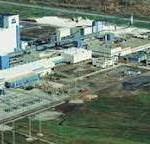 European leaders, concerned about the effect a global magnesium shortage will have on the European Union’s industrial recovery from the pandemic, have opened talks with China, which supplies the bloc with about 95% of the silver-white metal used to make aluminium.
European leaders, concerned about the effect a global magnesium shortage will have on the European Union’s industrial recovery from the pandemic, have opened talks with China, which supplies the bloc with about 95% of the silver-white metal used to make aluminium.
Local companies, including Norway’s Norsk Hydro, stopped producing magnesium because they could not compete with the lower costs of Chinese producers.
This would not have been a problem if Beijing had not recently ordered some 35 of its 50 magnesium smelters to close until the end of the year to save energy. That means current European stocks will be exhausted by the end of November, the German association of metal producers WVM warned on Tuesday.
Magnesium is used for a range of products, particularly aluminium alloys, which are used in various parts of cars, from gearboxes and steering columns to seat frames and fuel tank covers.
German Chancellor Angela Merkel and Czech Prime Minister Andrej Babiš, leaders of the continent’s main car-producing countries, raised the issue on Thursday during a summit of European leaders.
The European Commission spokesman raised the issue with Chinese counterparts to address immediate shortages and assess long-term solutions to deal with this strategic dependence.
Because the metal is difficult to store and begins to oxidise after three months, global stocks could be critically depleted before the end of the year if Beijing does not restart production in the coming weeks.
This problem, if unresolved, threatens thousands of companies across Europe, their entire supply chains and the millions of jobs that depend on them, a dozen industry groups including metal producers, automotive suppliers and the packaging sector.
.gif) Loading
Loading

